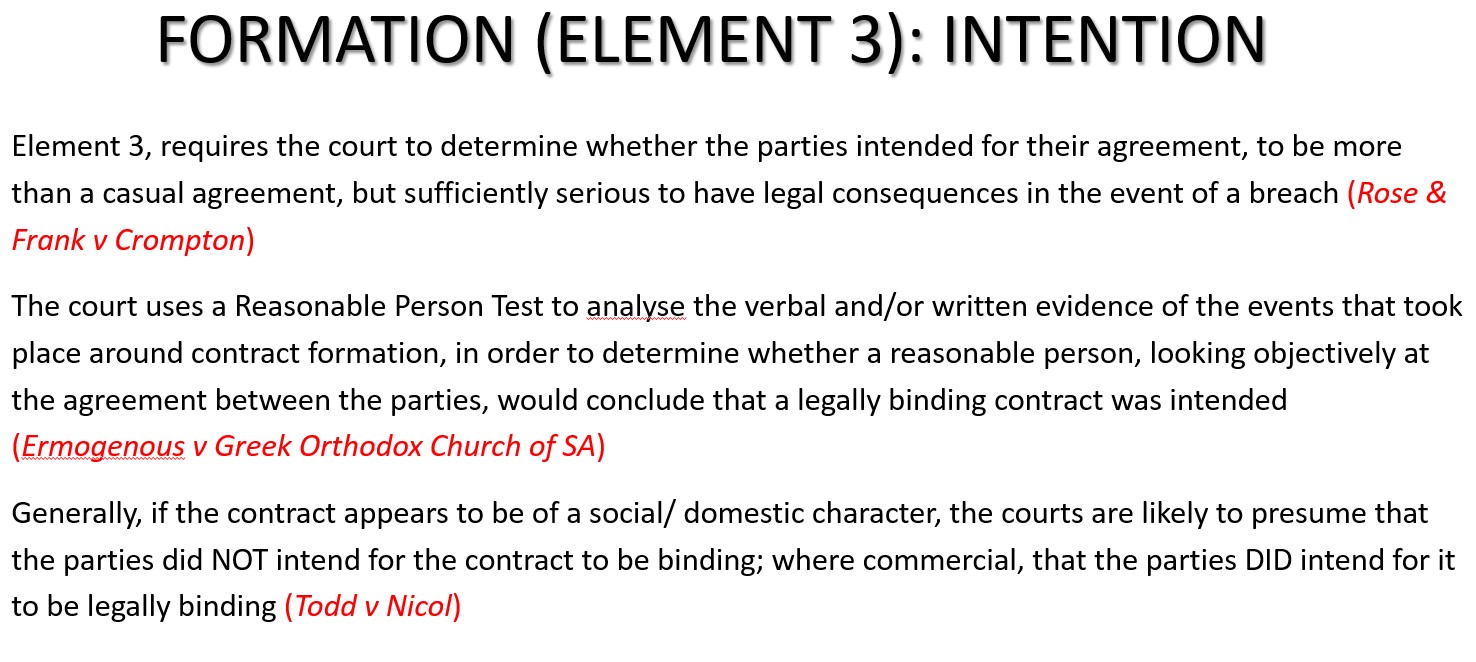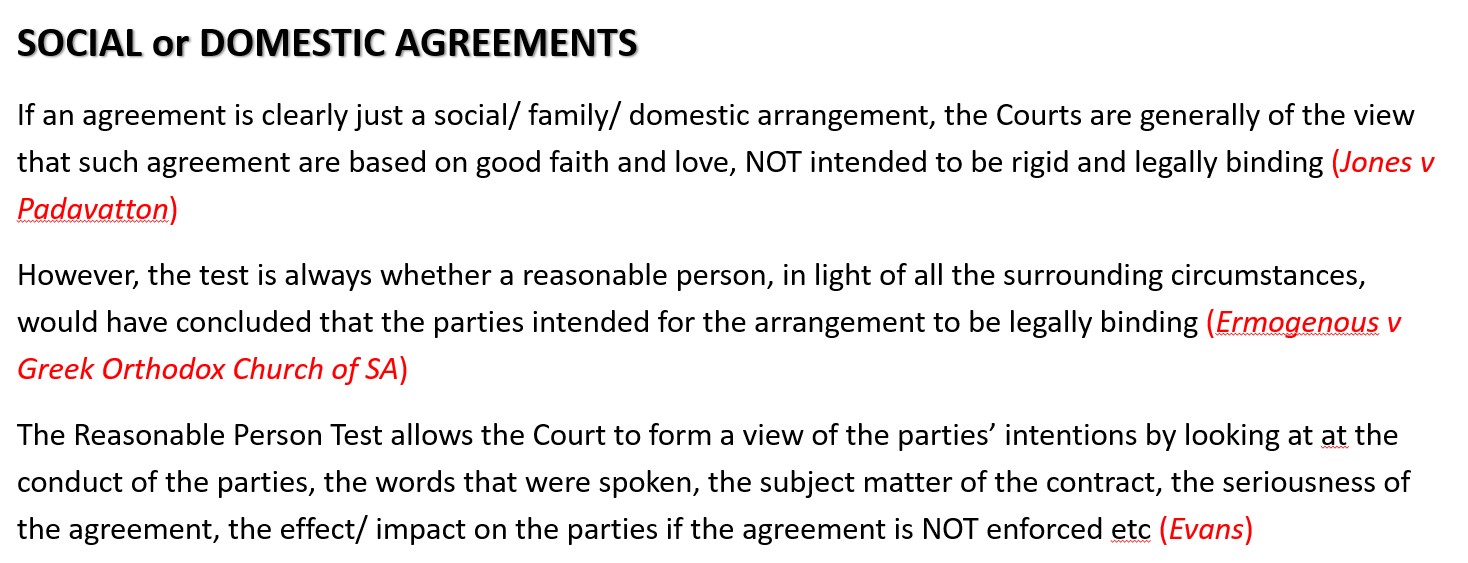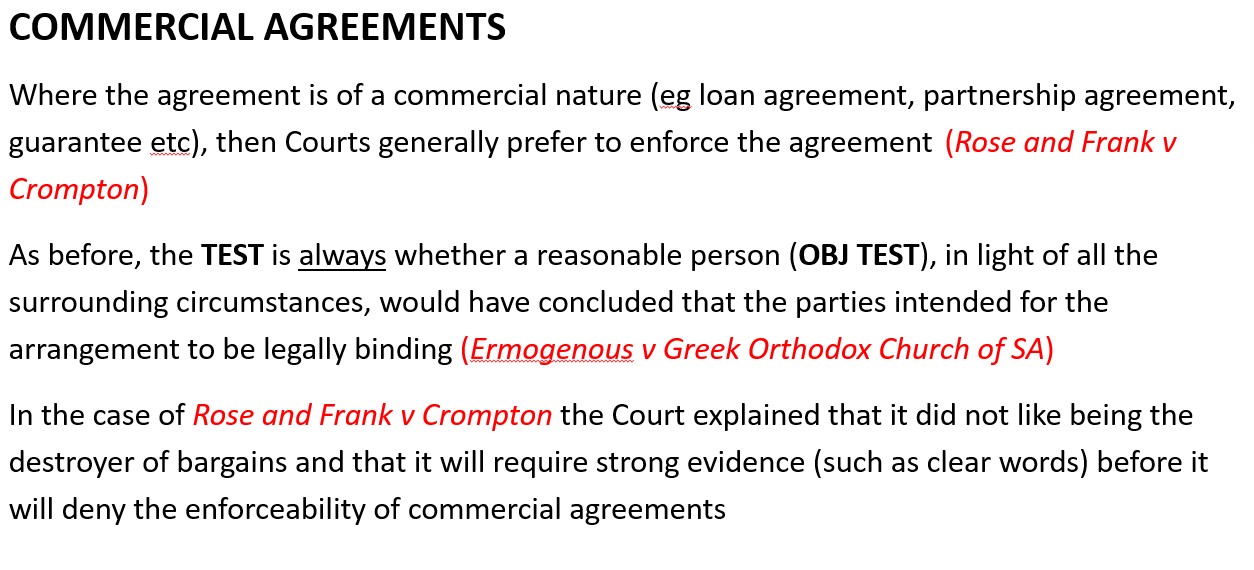Question
CONTRACT LAW (1) With reference to Element 3 (Intention), explain and provide reasons whether a breach of contract occurred between two sisters called Kate and
CONTRACT LAW
(1) With reference to Element 3 (Intention), explain and provide reasons whether a breach of contract occurred between two sisters called Kate and Emma.
a)Kate and Emma, arrange to meet each other for lunch. Kate shows up late to the restaurant.
b)Kate agrees that Emma could use her car for the weekend. Emma agrees to refuel it before returning the car. She forgets and returns the car empty.
c)Kate offers to sell an old jacket to Emma $50. Emma promises to pay immediately, but only pays Kate at the end of the month.
d)Kate offers to sell her car to Emma for $15,000. Emma agrees to pay for the car within 2 weeks. Two months later, Emma still hasn't paid.
e)Kate and Emma agree to buy a house together. They agree that Kate would pay the deposit of $50,000 and that Emma would repay Kate for half of the deposit plus be ready to pay for her half of the asking price of $600,000 by settlement date. On settlement date, Kate is shocked to learn that Emma hasn't contacted a bank to apply for a home loan. As a result, the sale falls through and Kate loses her $50,000 deposit on the house.
(2) Pepsi offered various prizes to customers who had accumulated points on drink containers. In one such campaign, Pepsi promised to give away a Harrier fighter jet worth about $90 million to anyone who can accumulate 7million point. A 21-year-old business student collected the required 7 million points, but the claim for the jet was rejected. Explain why the court would not enforce the contract in Leonard v Pepsi Co. (Ignore Element 1: Offer)
Attachments are followed:



Step by Step Solution
There are 3 Steps involved in it
Step: 1

Get Instant Access to Expert-Tailored Solutions
See step-by-step solutions with expert insights and AI powered tools for academic success
Step: 2

Step: 3

Ace Your Homework with AI
Get the answers you need in no time with our AI-driven, step-by-step assistance
Get Started


